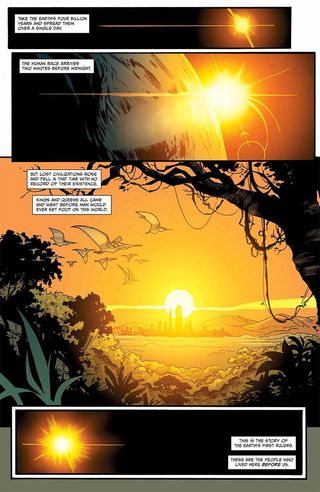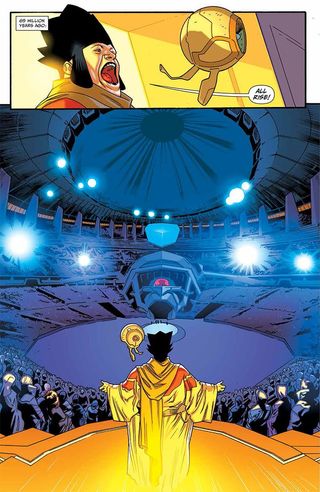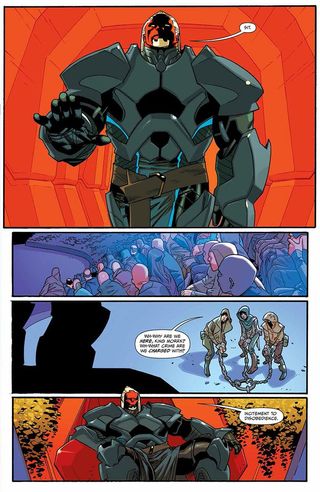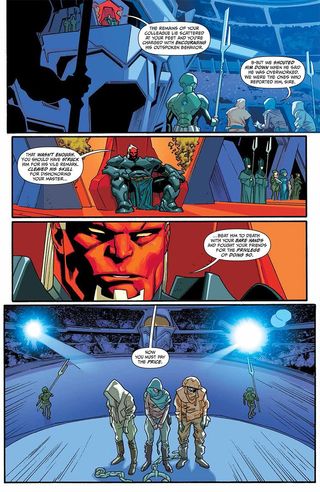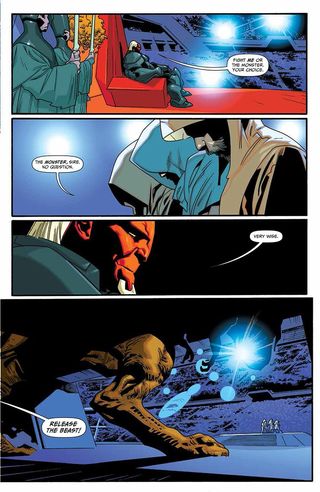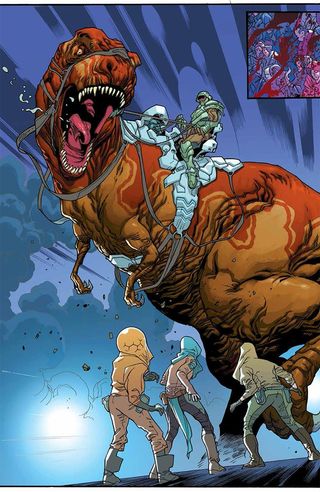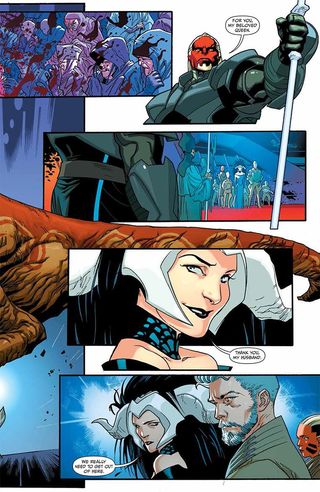They say that Jaws and Star Wars changed cinema forever and they’re right, but only partly. Let’s take a look at Jaws first. Those lines around the blocks in 1975 inspired studios to not just green-light three sequels to the picture, but anything with a shark, a piranha, a barracuda, a giant squid, killer whales and a dino-shark. Twenty years after Jaws-mania it was all-systems-go for Deep Blue Sea and Open Water. Forty years later and I’m sitting with my popcorn in my lap, excited about Eli Roth’s Megalodon.
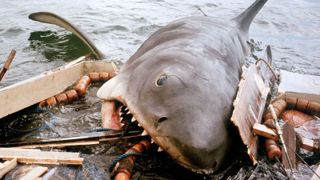
But it doesn’t stop there. Jaws might have borrowed from the structure of both American and Italian slasher movies of the '60s and '70s, but not as much as later slasher-fare pinched from Jaws. That very strict format of people-just-trying-to-have-fun torn to bloody pieces by a monster we don’t see until the third act was perfected by Jaws and the trope of every VHS movie we watched when our parents didn’t realise we had their video membership cards. This structure was replicated right down to the figure of authority putting several bullets in the menace in a rousing, frenzied finale. So the shadow of Jaws looms large. Star Wars not so much.
I can hear your sharp intake of breath and I say this as a lover, not a hater. Star Wars is the most commercially successful idea in cinema history (when you combine the grosses of every merchandising dollar with the theatrical and home entertainment releases) and yet there’s very little else like it. Sure, we had the delicious Dino De Laurentiis Flash Gordon, which they say used so much colour in 1980 that Raging Bull had to be shot in black and white. But it was a one-off. A single picture that’s never been remade. We had Star-Crash, Star Odyssey, Message from Space, Star-Chaser and Galaxina, but I’ll bet you five bucks right now you didn’t see more than one of them in a cinema and most cost less than the device you’re reading this on.
The honest truth is that the studios didn’t really understand Star Wars and even when they had the first cut of the original sitting in a screening room with Lucas himself they still didn’t really appreciate what they were releasing. They had no idea why this connected with audiences and so they followed it up with a slew of 1980s fantasy pictures, from Krull, to Hawk the Slayer, to Labyrinth, to the Never-Ending Story. These were all fun pictures, but it was a complete misunderstanding of what people craved, much like the execs who decided after Tim Burton’s Batman that what the kids really enjoyed was retro-30s art-deco heroes, paving the way for The Shadow, Dick Tracy, The Phantom and The Rocketeer instead of more superhero pictures.
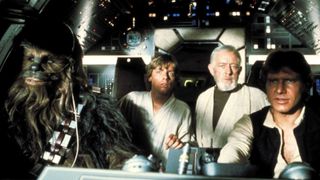
So what happened? Well, Ridley Scott happened, baby. Just as everyone was feeling around after Star Wars and trying to figure out what audiences wanted Ridley gave us Alien. Suddenly sci-fi wasn’t for kids anymore and every good director in the world wanted to be as cool this guy. Think Alien was great? Here comes Blade Runner and Ridley wows us with that one-two punch and very possibly the two most influential sci-fi pictures in the history of cinema.
Now neither of these movies made anything like as much money as Star Wars, but all the quality genre directors were so dazzled by their brilliance that every sci-fi release for the next thirty years would follow this model instead. Every '80s, '90s and '00s sci-fi is set in that same claustrophobic, rain-soaked, hard-machine world Ridley established all those years ago and Star Wars was hung out to dry. The four-quadrant family space-opera was pretty much never seen again (besides the prequels), which is odd when Star Wars is kinda, y’know, the biggest money-spinner of all time an’ all.
Maybe it’s because we have young kids and we’re always looking for movies to see, but a good pal and I got talking about this last year. We wondered if the reason Star Wars is so goddamn enormous and the excitement building up to Episode 7 was so overwhelming is because we’re genuinely starved of this kind of material. It’s a controversial thought because talking heads have told us for forty years about the enormous legacy of the Skywalker story and how cinema was changed forever, but the reality is that there really hasn’t been much in the way of well done family space-fantasy since somewhere around 1983.
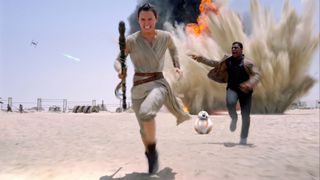
A new Star Wars movie every couple of years, plus a spin-off feature every alternate year, was deemed way too much by internet movie columnists in a world where we have three or four superhero pictures a year, and at least eight major release spy-movies in 2015 alone. Pretty much all of which went on to make money by the way. But the fact that Episode 7 came along and crossed two billion dollars to become the third-biggest feature of all time shows that the appetite is very much still there. So it’s odd that we’re not prepared for this like when Spider-Man, Avengers, Batman and Iron Man joined the line to reap the rewards of Bryan Singer’s first X-Men movie. Disney has an absolute stranglehold on this genre between Star Wars and Guardians, no other studio even being able to get into the ring, but I really want to break that over the next couple of years.
As a writer I always trust my instincts and what I’m writing tends to be what I’m missing as a reader or viewer. Back in 2002 I was co-creating The Ultimates because I loved and missed The classic Avengers. Back in 2006 I was writing Civil War, a big political superhero drama because I wanted a Marvel comic that felt a little different from what people might expect. For the last couple of years I’ve been writing epic, inclusive sci-fi stories aimed at a wide audience and I didn’t even realise it until I looked at the collected graphic novels on my shelf. Starlight, my homage to the Buck Rogers space-heroes, is over at Fox, a kind of Unforgiven where an old Buster Crabbe type is back for one last adventure. Chrononauts is over at Universal, being put together with my old pal who produces the Fast and the Furious pictures. Empress is my new one, out on April 6, and a big family space opera fantasy about a woman who’s married to the worst tyrant in the universe and wants a divorce, fleeing his terrifying world with her three children and their bodyguard for refuge on the other side of the galaxy.
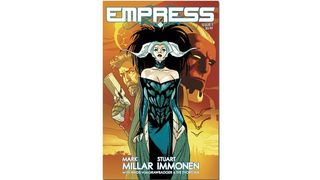
Why am I writing these right now? Because they’re the kind of comics I want to read at the moment as my head shifts from superheroes into sci-fi. As a guy who goes to the cinema twice a week they’re also the kind of movies I want to watch while I’m waiting two years to see if Mark Hamill is now a good guy or a bad guy. The fact that the movie rights were purchased so quickly (we sold the Empress movie rights a few months back after I handed in my final script) is a good sign that Hollywood is ready for that big budget family space-opera we’ve all been clamouring to see.
They’re maybe finally understanding that sci-fi doesn’t always need to be so dark and dystopian and there’s room for a little brightness too. After all, Star Wars: The Force Awakens crossed two billion dollars recently. That’s more money than The Avengers, Gravity, Spider-Man, Mad Max, Iron Man, The Matrix, Superman, Batman, Lord of the Rings, Pirates of the Caribbean, The Terminator, Frozen, The Lion King, The Fast and the Furious, Harry Potter, any James Bond and the grosses of all the Alien movies combined. There’s a big, giant lesson here if anyone can see it. Kids want sci-fi too.
Mark Millar is a renowned comic book creator and writer. He's the man behind Kick Ass and Kingsman: The Secret Service, and you can check out all the info on his latest comic - Empress - right here. Mark is a semi-regular contributor to GamesRadar+ and, in addition to this piece on Star Wars, you can check out his thoughts on Man Of Steel. As an added bonus, check out the first seven pages of Empress below...
